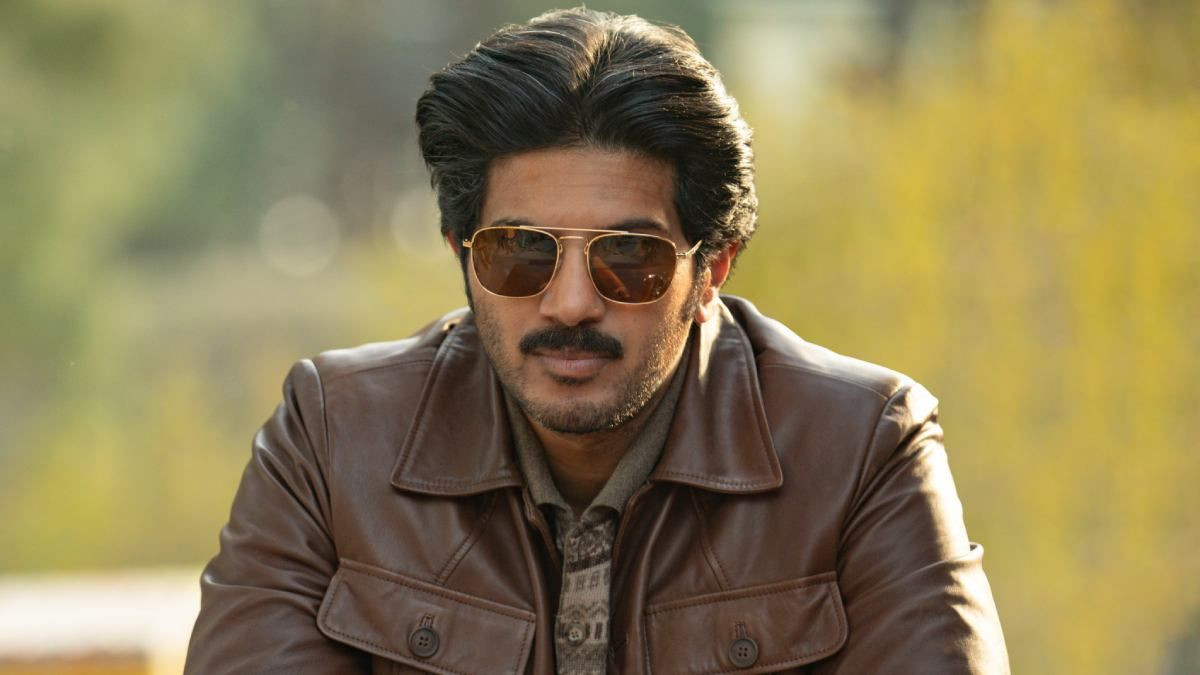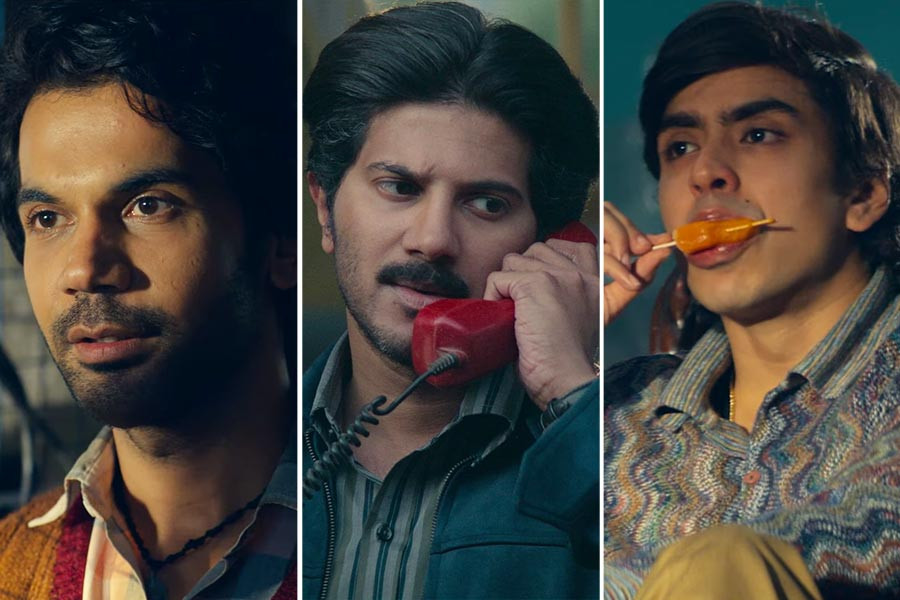The much-anticipated web series Guns and Gulaabs (GAG) has finally arrived on Netflix, on, much to the delight of Raj and DK fans who have been waiting to experience their signature storytelling style. Known for their unique execution, compelling narratives, and eccentric character development, Raj and DK have carved a niche for themselves in the realm of entertainment. From Go Goa Gone, to Farzi and The Family Man, their universes are teeming with intriguing characters that boast unpredictability, uniqueness, and a touch of eccentricity, making them truly captivating.
With GAG, the dynamic duo brings us a seven-episode series that dives headfirst into a world of Sherpur and Gulaab Ganj gangs, where lives intertwine in unexpected ways.
Rajkummar Rao, Dulquer Salman, Gulshan Devaiah, and Adarsh Gourav take centre stage in this latest offering. The series is also enriched by the presence of acclaimed actors such as the late Satish Kaushik, Vipin Kumar, Nilesh Divekar, and Varun Badola, all of whom play essential roles in weaving the narrative's intricate tapestry.
The heart of GAG beats within the two rival gangs from Sherpur and Gulaab Ganj. Their actions have a ripple effect that touches the lives of those directly and indirectly connected to them. Set against the backdrop of the 90s, the show offers a delightful rendezvous with nostalgia, particularly for those who grew up during that era or experienced the rollercoaster of their teen years at the time.
From iconic Walkmans to cassette players, bicycles, goggles, fragranced love letters, craze for wrist watches and fizzy drinks, the series masterfully captures the essence of youth during the 90s. Even the chapter titles of the show pay homage to the music and films of the 80s and 90s, such as Kasam Paida Karne Wale Ki, Do Dil Mil Rahe Hain, and Raat Baaqi, with one episode titled Everything I Do I Do It For You, that playfully borrows from a Bryan Adams classic.

The series kicks off with a poignant debate between two boys, exploring the depth of their love as they engrave their girlfriends' names on their arms using a compass. As the narrative unfolds, a delicate love story emerges, where a girl and a boy find themselves falling in love while walking their bicycles alongside each other instead of riding them home. Intriguing classroom dynamics, such as the class monitor relinquishing his badge to the new class topper, and the same monitor penning the names of troublemakers on the blackboard, add layers of reminiscence and authenticity to the tale. However, despite the extensive screen time allocated to these children, their integration with the main storyline occasionally feels more contrived than naturally flowing.
Embarking from the innocence of childhood and crossing the territory to the shadowed realm of gangsters and opium fields, the series sets sail on a voyage that interlaces a tapestry of characters. Ranging from the fledgling to the fearsome, these characters are strung together by their aspirations, inspirations, dreams, and divergent lifestyles. It's a symphony of lives, with each note resonating through the screen.
Ganchi, portrayed by the late Satish Kaushik, operates as a drug dealer in Gulaabgunj and enters a significant agreement with Sukantao Chatterjee, a Kolkata-based businessman played by Rajatava Datta. The terms of the deal require Ganchi to deliver a substantial quantity of opium to Sukanto within a month. Meanwhile, an honest narcotics officer named Arjun Varma, played by Dulquer Salmaan, arrives in Gulaabgunj with the intention of cracking down on the illicit opium trade.
Paana Tipu, the son of Babu Tiger (Arijit Dutta), a prominent member of Ganchi's criminal organisation, works as a mechanic and aspires to avoid following in his father's footsteps. He is deeply in love with Chandralekha, a schoolteacher played by TJ Bhanu. However, Tipu's life takes an unexpected turn when he ends up killing two members of Chaar Cut Atmaram's gang (Gulshan Devaiah) in retaliation for his father's murder, and inadvertently becomes a part of the criminal underworld.
Meanwhile, Ganchi faces an unforeseen complication that forces his son, Jugnu (Adarsh Gourav), to step in and complete the high-stakes deal. The intertwining of these characters' lives forms the central narrative of the series.

Yet, for all its intricacy, the core plot is akin to a classic vanilla base ― a touch familiar, a bit simplistic. It's the unfolding of events, like dominos cascading one upon the other that charts the course of GAG. There's Tipu, son of Tiger, a reluctant inheritor of his father's legacy, a paradox where desire clashes with destiny. Then there's Jugnu, a son yearning to carve his own path, amidst the shadow of paternal expectations. Arjun Verma, an enigmatic inspector, with layers more deceptive than a magician's trickery. And hovering menacingly is Aatma Ram, a soulless assassin with an untold backstory that lies cloaked in myths and mysteries.
It's the concoction of these characters that furnishes the web series with its unique hue and texture, each stroke of their presence shaping the canvas upon which the story unfolds.
Raj Kummar Rao, the reliable gem amidst the ensemble cast, finds himself confined to a rather restricted playground in GAG. The blame, it seems, lies at the doorstep of the writers. Tipu, portrayed by Rao, is a character that flirts with unpredictability. On the surface, he may appear as basic as it gets, yet lurking beneath is a potential for a complete transformation when stoked by provocation. Alas, it's his love escapades that serve as the main ingredient for the comedy pot, outweighing the emotional essence they were meant to evoke. In a couple of scenes, Raj Kummar Rao’s prowess bursts forth, proving his towering caliber as an actor.
The first such instance materialises when he gazes at Aatma Ram, masterfully played by Gulshan Devaiah, mercilessly snuffing out the life of his dear friend. The intensity of the moment is palpable, and Rao's portrayal does justice to the turmoil. The second demonstration of his acting prowess emerges when he reminisces about that poignant moment shared with his love interest atop a rooftop. However, amidst the anticipation, the audience's thirst for a little more from Rajkummar remains somewhat unquenched in GAG.
Dulquer Salman steps into the shoes of Arjun Verma, a character as intriguing as a crossword puzzle. His quirks are a breath of fresh air ― a man staunchly devoted to the authenticity of original film songs, turning up his nose at the once-famous ‘Jhankaar’ remixes that peppered the 90s. A curtain raiser to his idiosyncrasies unfolds in the opening scene. Here, seated behind the wheel of a police jeep, he immerses himself in the timeless melodies of RD Burman's Hoga tum se pyara kaun. Yet, the twist arrives when he abruptly ejects the cassette from the vehicle upon realising it's the dreaded Jhankaar version. This particular event in GAG paints a vivid picture of Arjun Verma's distinct persona. Dulquer Salman dons his role with apt finesse, slipping seamlessly into the skin of Arjun Verma. However, as the curtain lifts, the one who takes a slight stumble seems to be the script itself. The character performs his dance, yet the choreography of the narrative appears to be slightly askew, leaving a pinch of discontent.
Adarsh Gourav as Jugnu is what you may call dangerous yet cute. His actions are a mismatch of what he is and what he tries to live ― which is well defined in the climax. Here, brownie points go to Adarsh for playing his character so well. The boy is getting better and denser as a performer in every character that he performs.
Gulshan Devaiah emerges as the undisputed scene maestro in GAG, and it's not just through a torrent of words. In a canvas where dialogues are rationed, his character blooms into a force of nature, stitching together potency with every stride, gesture, and glance. Kudos to Devaiah for wrapping himself in the skin of a character that thrives on subtlety yet wields an air of authority that's nothing short of captivating.
Sporting the iconic Sanju Baba coif of the 90s like its second nature, Gulshan Devaiah metamorphoses into the epitome of intimidation. His looks could curdle milk, and his glares could freeze time itself. Aatma Ram, a figure veiled in intrigue and fascination, strides onto the screen with a grand declaration, a line that peels back his layers, "Dushman ke liye nahin, style ke liye hai" [Not for the enemy, but for the flair]. Devaiah doesn't just play a character; he breathes life into an enigma that dances on the fringes of menace and mystery.
Satish Kaushik, essaying the role of Ganchi, unfurls his lines with the kind of finesse that only a seasoned virtuoso can summon. It's true that on paper, the lines might not be revolutionary, but the alchemy Kaushik weaves with them is what elevates them into a league of their own. A magician with words, he takes the ordinary and transforms it into something extraordinary. A handful of scenes become pedestals for Kaushik's brilliance to bask in. The resonance of his performance ripples through instances such as his rendezvous with Arjun Verma, his meeting with Sukanto (the Calcutta Drug Cartel handler), and the poignant moment, delves into the depths of his past as he clinks glasses with his son Jugnu. These moments crystallise Kaushik's masterful artistry, a class act that has left a void, as he's now departed from this realm, leaving his fans yearning for more.
While GAG offers a plethora of twists and turns that keep audiences on their toes, these surprises sometimes come a bit too late in the game. The initial episodes are dedicated to building the foundation of the story and establishing the characters with intricate nuances. The ensuing tale is entertaining and occasionally engaging, though at times it succumbs to moments of dragging pace. By the time the climax unfolds, the impact could be diluted due to the late introduction of significant plot elements. It's evident that Raj and DK invested considerable effort in fostering a sense of connection with the era's nostalgia, but in doing so, the intricate storytelling, unique plot features, and character arcs seem to have taken a backseat. And for this, I’ll rate GAG, three out of five stars.
By the way, Kumar Sanu’s song Do raazi delightfully touches the 90s again. This one is exactly how the songs from that era used to be ― refreshing, soulful and romantic.
Shafiq Ul Hasan Siddiqui is an avid movie buff, and film and drama critic and a digital inbound marketer. He tweets as www.twitter.com/shafiqulhasan81. All information and facts are the responsibility of the writer
